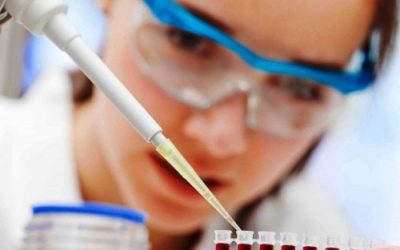- Latest news▼
-
12:16, April 19 Scientists grow human mini-lungs in lab

-
10:23, April 19 JAMA Oncology: Urine test can help rule out high-grade prostate cancer with almost 100% accuracy, study shows

-
18:00, April 18 Daily Mail: Elderly woman in China gets infected with brain-eating amoeba

-
14:19, April 18 Obesity: exercising before breakfast helps you lose weight faster

-
10:42, April 18 The Conversation: childhood trauma can cause pathological hoarding

-
08:37, April 18 Daily Mail: Satiating food reduces cravings for sweets, nutritionist says

-
18:22, April 17 First Armenian-German Conference entitled “Heart Failure Spring School”

-
08:38, April 17 Why do kids usually recover from COVID-19 more easily than adults?

-
14:37, April 16 Daily Mail: intermittent fasting is not suitable for children and women before their periods

-
16:41, April 15 Cell: in carriers of defective BRCA2 gene, sugar consumption increases cancer risk

-
15:04, April 15 305 cases of measles recorded in Armenia so far in 2024

-
14:38, April 15 Food and Environmental Virology: tea contributes to effective coronavirus control

-
12:41, April 15 Daily Mail: vitamin A, B3 and E supplements can be dangerous

-
10:56, April 15 Diabetes Care: evening physical activity is good for the heart

-
08:27, April 15 Women are more susceptible to blood loss and death during bypass surgery than men, researchers say

All materials
Stem cell factories now possible thanks to new synthetic material

Scientists at the University of Nottingham in England have developed a synthetic material that could facilitate mass producing human stem cells. The discovery could lead to the creation of “stem cell factories” and may be the key to further innovations in the field of regenerative medicine.
Regenerative medicine, or medical treatments that replace human cells, tissues, and organs, has the potential to offer patients with medical conditions considered “beyond repair” a new chance at life. According to the Mayo Clinic, stem cells hold the key to turning this potential into a reality. As explained in the study, the material, a substrate (a molecule another substance is applied to), could give researchers the power to grow an endless supply of stem cells through the creation of stem cell factories.
"The possibilities for regenerative medicine are still being researched in the form of clinical trials," lead researcher Morgan Alexander explained in a statement. "What we are doing here is paving the way for the manufacture of stem cells in large numbers when those therapies are proved to be safe and effective."
Regenerative medicine is described as any process that creates living functional tissue to replace tissue of organ function lost to disease or injury. The National Institutes of Health(NIH) credits the first successful kidney transplant in 1954 as the birth of regenerative medicine. Today, transplant medicine has transformed and progressed, with around half a million Americans benefitting from a transplant each year. Regenerative medicine can now not only repair injuries with tissue from donors, but actually regrow the tissue in a laboratory. It is in this sector of regenerative medicine that the ability to create stem cell factories would truly be beneficial.
The team foresees their findings being implemented in the regrowth of cells lost during heart attack. As co-author Chris Denning explains in a video press release on the study, the average patient loses around five billion cells during a heart attack. Replacing these cells would significantly increase a patient’s chances of long-term survival.
“The aim of a stem cell factory is absolutely right,” Denning said. “We need to produce really quite vast numbers of these cells because we’re not talking about treating one patient. …We need trillions of cells to produce.”
Denning predicts that synthetic stem cell growing material could be used to help patients in as little as two or three years.
Follow NEWS.am Medicine on Facebook and Twitter
- Video
- Event calendar
- Archive
- Most read
month
week
day
- WHO: Nigeria pioneers revolutionary meningitis vaccine 1187
- One-third of women experience menstruation-related migraines, most often during premenopause - study 1184
- Daily Mail: vitamin A, B3 and E supplements can be dangerous 1075
- Food and Environmental Virology: tea contributes to effective coronavirus control 1067
- Cell: in carriers of defective BRCA2 gene, sugar consumption increases cancer risk 1039
- 305 cases of measles recorded in Armenia so far in 2024 1031
- Women are more susceptible to blood loss and death during bypass surgery than men, researchers say 971
- Diabetes Care: evening physical activity is good for the heart 927
- Daily Mail: intermittent fasting is not suitable for children and women before their periods 861
- First Armenian-German Conference entitled “Heart Failure Spring School” 631
- Why do kids usually recover from COVID-19 more easily than adults? 530
- Obesity: exercising before breakfast helps you lose weight faster 529
- Daily Mail: Elderly woman in China gets infected with brain-eating amoeba 519
- The Conversation: childhood trauma can cause pathological hoarding 518
- Daily Mail: Satiating food reduces cravings for sweets, nutritionist says 492
- Find us on Facebook
- Poll





